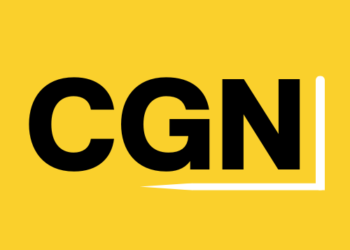Recur Club’s New Rs 150 Crore Fund: A Boost for D2C Brands in Quick Commerce
In a strategic move to empower direct-to-consumer (D2C) brands, Recur Club has launched a Rs 150 crore ($18 million) fund aimed at accelerating growth within the quick commerce sector. This fund is designed to provide essential working capital, enabling brands to scale inventory and enhance marketing efforts swiftly. With the promise of loan disbursal within seven days, Recur Club is positioning itself as a pivotal player in the fast-evolving landscape of quick commerce.
Quick Commerce and D2C: A Growing Synergy
The quick commerce market in India is on an upward trajectory, with projections indicating a compound annual growth rate (CAGR) of over 25% leading up to 2030. Simultaneously, the D2C sector is expected to surpass $60 billion by 2027. This synergy presents a fertile ground for brands looking to capitalize on consumer demand for rapid delivery and direct engagement.
Recur Club’s initiative aligns with the broader "Make-in-India" movement, supporting homegrown brands in their quest for market dominance. Notable beneficiaries of Recur Club’s funding include brands like Ustraa and Wellversed, which have leveraged the platform to scale operations and meet consumer expectations.
The Mechanics of Recur Club’s Funding
Recur Club operates as a debt marketplace, offering loans tailored to the unique financial needs of startups and SMEs. Businesses can secure loans ranging from Rs 50 lakhs to Rs 100 crore within 48 hours by linking their financial data to the platform. This rapid access to capital is a game-changer for brands operating in the fast-paced quick commerce sector.
In collaboration with InCred, Recur Club has already deployed Rs 300 crore in funding, targeting early and mid-stage startups in 2024. The company has committed to deploying Rs 2,000 crore in debt funding for startups and SMEs through its Recur Scale initiative, alongside Rs 1,000 crore for MSMEs through Recur Swift.
The Impact on D2C Brands
Over the past three years, Recur Club has disbursed over Rs 500 crore to D2C businesses, accounting for 30% of its overall portfolio. This funding supports companies with revenues ranging from Rs 1 crore to Rs 300 crore, enabling them to expand their reach and enhance their product offerings. The backing of institutional investors like InfoEdge Ventures, Village Global, LC Nueva, and Titan Capital further solidifies Recur Club’s position as a reliable partner for growth.
Eklavya Gupta, CEO & co-founder of Recur Club, emphasizes the importance of quick commerce platforms for consumer brands. "With more than half of the 300 consumer brands we’ve financed utilizing quick commerce platforms, it’s clear that these businesses are primarily investing in scaling inventory to keep pace with consumer demand and employing strategic marketing efforts," he states.
Challenges and Opportunities
While the opportunities are vast, D2C brands face challenges in navigating the quick commerce landscape. The need for efficient inventory management and effective marketing strategies is paramount. Brands must also stay attuned to consumer preferences and technological advancements to maintain a competitive edge.
Recur Club’s funding offers a lifeline, but brands must strategically allocate resources to maximize returns. This involves:
- Inventory Management: Ensuring sufficient stock to meet demand without overextending resources.
- Marketing Strategies: Leveraging data-driven insights to target the right audience and optimize campaigns.
- Technological Integration: Adopting tools that streamline operations and enhance customer experience.
Looking Ahead
As the quick commerce and D2C sectors continue to evolve, Recur Club’s fund represents a significant step towards empowering Indian startups. By providing timely access to capital and facilitating growth, Recur Club is helping brands unlock their potential in a competitive market.
For more information on Recur Club’s offerings, visit Recur Club.
In this rapidly changing environment, how will D2C brands leverage this funding to redefine consumer experiences? The answers lie in strategic planning and execution, backed by robust financial support.


















